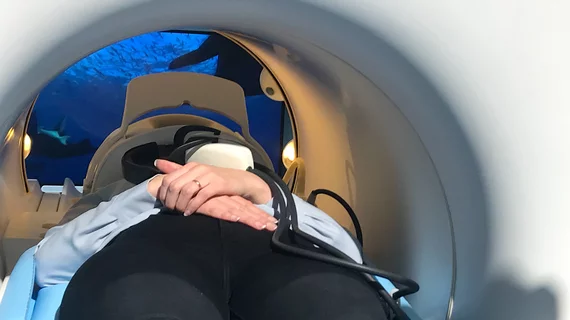Philips celebrates nearly 2M liters of liquid helium saved thanks to its helium-free MRI technology
Royal Philips’ has saved nearly 2 million liters of liquid helium thanks to its "helium-free" MRI technology.
The company made the announcement following the 1,111th installation of its BlueSeal 1.5T magnet, which took place at the Vida Imaging and Breast Center in Bayamón, Puerto Rico.
"Since 2018, Philips has been the first to provide helium-free MR operations worldwide, improving access to better care for more patients, and we will continue to drive innovation in this space,” Ruud Zwerink, business leader of MR at Philips, said in a release. “BlueSeal magnet technology has proven to be the system of choice for improved diagnostic capabilities, while providing an answer to growing concerns about helium supply chain disruptions, saving approximately 1.9 million liters of liquid helium to date.”
Most MRI scanners require around 1,500 liters of liquid helium to keep cool, with periodic refills throughout a machine’s lifetime. Philips’ helium-free systems require just 0.5% of what a standard system needs to properly cool—a significant improvement amid concerns of a looming helium shortage.
The January sale of the United States’ helium reserve has escalated these concerns among many in the medical community.
Philips has been at the forefront of addressing the helium woes, launching its "helium-free" technology in 2018 and investing significant time and money into research on alternative cooling methods.
In addition to requiring just a fraction of the typical amount of liquid helium to stay cool, the need for refills is also avoided with Philips’ MR 5300 scanner with BlueSeal technology. It also shortens the process of turning scanners on and off, which is a valuable tool in places like Puerto Rico, where tropical storms often disrupt the power grid.
“Puerto Rico has tropical storms every year. Philips BlueSeal magnet technology allows us to de-energize our MRI system to prepare the MRI department for this situation and restore operations quickly once it is safe, all from the MRI console,” Mayra Maldonado, MD, owner and CEO at the Vida Imaging & Breast Center, said in the same statement.

